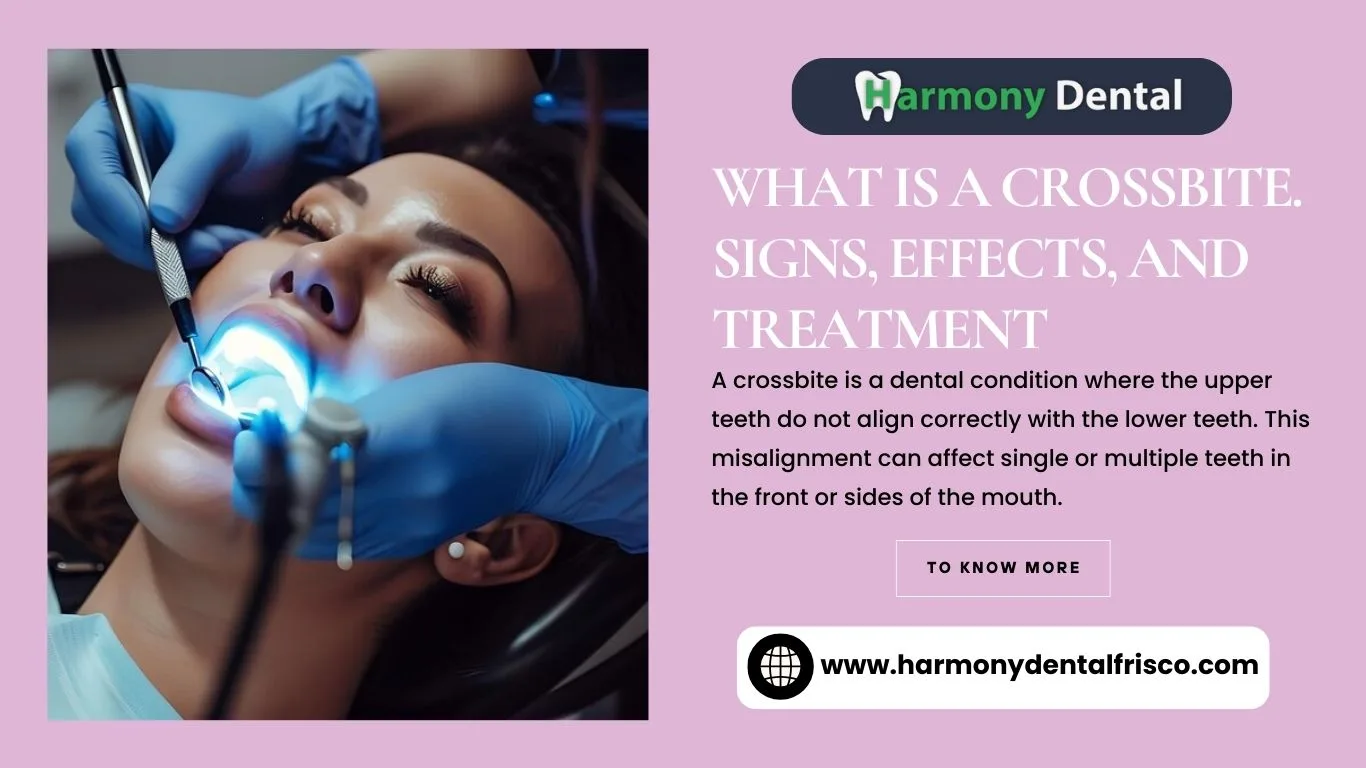What is a Crossbite - Signs, Effects, and Treatment
A crossbite is a dental condition where the upper teeth do not align correctly with the lower teeth.
This misalignment can affect a single tooth or groups of teeth and can occur in the front (anterior crossbite) or the sides (posterior crossbite) of the mouth. Crossbites can result from genetic factors, delayed tooth eruption, or habits like thumb sucking.
Signs of a Crossbite
Identifying a crossbite early can help prevent complications. Here are common signs to look out for:
Misaligned Teeth: Noticeable when the upper teeth fit inside the lower teeth when biting.
Jaw Discomfort: Frequent pain or discomfort in the jaw, especially when chewing.
Uneven Wear: Uneven wear on the teeth, which can be visible during routine dental check-ups.
Gum Issues: Gum recession or discomfort due to improper alignment.
Facial Asymmetry: In severe cases, facial asymmetry or changes in facial structure.
Effects of a Crossbite
If left untreated, a crossbite can lead to several dental and health issues:
Tooth Wear: Uneven pressure can cause excessive wear on certain teeth, leading to enamel erosion and cavities.
Jaw Problems: Increased risk of temporomandibular joint (TMJ) disorders, which can cause jaw pain and headaches.
Gum Disease: Misalignment can contribute to gum recession and periodontal disease.
Chewing Difficulties: Difficulty chewing food properly, which can affect digestion and nutrition.
Speech Issues: In some cases, a crossbite can interfere with speech development, causing lisps or other speech impediments.
Treatment Options for Crossbite
Fortunately, various treatment options are available to correct a crossbite, depending on the severity and age of the patient:
Braces: Traditional metal braces or clear aligners (like Invisalign) can gradually correct the alignment of the teeth over time.
Palatal Expanders: A device used mainly in children to widen the upper jaw, creating more space for teeth to align correctly.
Dental Restorations: In cases where teeth are worn down, restorations such as crowns or veneers may be needed after alignment.
Surgical Options: For severe crossbites, especially in adults, surgical intervention might be necessary to reposition the jaw.
Retainers: Post-treatment retainers help maintain the new position of the teeth and prevent relapse.
Early detection and treatment of a crossbite are crucial for maintaining good oral health and preventing further complications. Regular dental check-ups can help identify crossbites early, ensuring timely and effective treatment. If you or your child shows signs of a crossbite, consult with a dental professional to explore the best treatment options.
Here's to a brighter, healthier smile with Harmony Dental!

